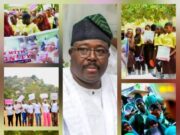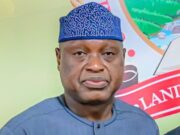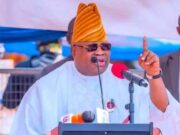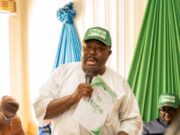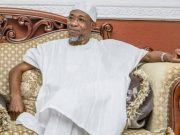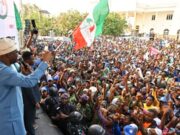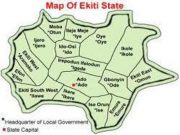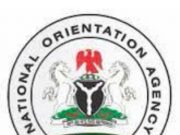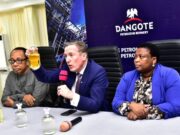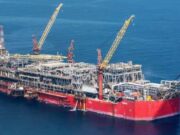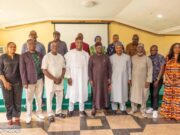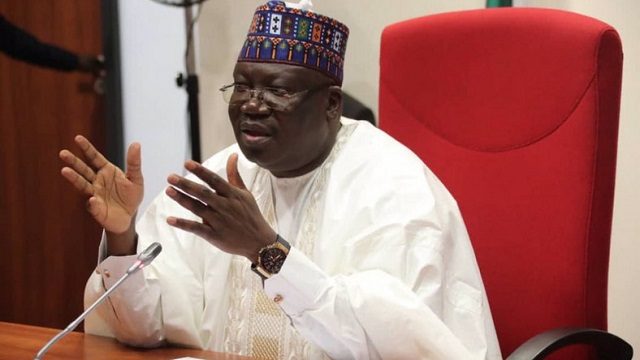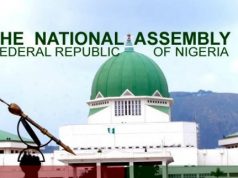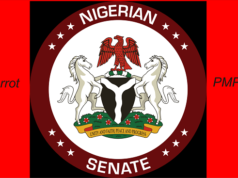Dr Ahmad Lawan, the President of the Senate has said that for the six geo-political zones in the country to surmount developmental and infrastructural challenges, the Federal Government must follow thorough with National Planning to address issues of deficits.
Lawan stated this in his concluding remarks after the Senate considered two bills seeking to establish the South East Development Commission and North Central Development Commission, respectively.
Both bills, which scaled second reading, were sponsored by Senators Stella Oduah (PDP – Anambra North) and Abba Moro (PDP – Benue South).
In his remark on both bills, the Senate President said, “Let me say that what we have all agreed is each geo-political zone should have a Development Commission, but in my view, what Nigeria needs most is proper planning.
“Because all these channels like one of our colleagues stated, is not based on Commission, but National Planning that is followed through.
“Lagos State is setting the pace in many aspects as a state compared to most of our states. They have been able to, through a well grounded blueprint, progress faster I think, than most of the states.
“I think we need to emphasize our National Planning more, because this is the only way we can address all development challenges in different parts of the country.”
“We have some advantages in some areas, and of course, some states in some geo-political zones have comparative advantage than others, these are where we are supposed to focus for the development of the country through investment in those areas that we find in some of the geo-political zones.
“I think every geo-political zone has something to contribute, definitely what we need is to ensure that we work to ensure that we exploit and utilize the potentials of the north central, and there are potentials everywhere in all the parts of the country,” the Senate President added.
Earlier, Senator Oduah, in her lead debate on the South East Commission bill, said the intent behind the introduction of the piece of legislation is to “tackle infrastructural deficit as well as engage the youth in productive ventures in the region.”
The lawmaker said the Commission when established Salk among other things, formulate policies and implement development programmes such as industrialization, agriculture, commerce and housing for the South East; as well as tackle ecological and environmental problems.
She stressed that, “the passage of this bill will be critical in addressing the South East agitation for marginalization through an integrative development plan that will promote and strengthen the sense of nationalism.”
Contributing to the debate, Senator Rochas Okorocha (APC – Imo West), said that the bill if passed and assented to by President Muhammadu Buhari, “will give People of the South East a sense of belonging.”
According to him, the establishment of the Commission by the Federal Government will address feelings of marginalization and neglect by the South East.
“The Igbos are beginning to feel dejected, rejected and neglected in a country that they belong to. The South East are not excited anymore,” the lawmaker said.
He added that the region which is reputed for scientific and technological innovations would contribute immensely to the development of the nation with the establishment of the South East Development Commission.
Senator Kabiru Gaya (APC – Kano South) said, “the essence of having zonal commissions is to assist the government of that zone in achieving development, as well as getting assistance from the International Community.”
Similarly, sponsor of the North Central Development Commission Bill, Senator Abba Moro, said statistics from the Nigerian Meteorological Agency showed that in 2012, flooding forced two million Nigerians from their homes and 363 died in Plateau, Benue, Niger, Nasarawa and Kogi states.
According to the lawmaker, “In 2016, 92,000 people were displaced and 38 died from incidents of flood in Benue, Kogi, Niger and Nasarawa states, and other parts of Nigeria.
“In 2017, flood affected 250,000 people on Benue, Kogi, Niger and Plateau states, and other parts of Nigeria,” Moro lamented.
He added that herder/farmer clashes in North Central Nigeria, especially in Benue State, have left infrastructure such as churches, hospitals, schools, houses, recreational centres destroyed and pierced by bullets.
“On February 24, 2016, rural dwellers in 45 villages of Agatu LGA were awakened by sound of gunshots and flicks of machetes as suspected militias swept into the area unleashing violence.
“The unfortunate incident left, in its wake, more than 500 persons dead, among which are children and women, with more than 39,000 persons dissolved from their ancestral homes,” the lawmaker lamented.
Moro said that the North Central Development Commission when established, will be saddled with the responsibility of receiving and managing funds allocated by the Federal Government and donors, for the resettlement, rehabilitation, integration and reconstruction of roads, houses, farmlands and business premises affected by flood, erosion and herders/farmers clashes.
The bills seeking to establish the South East Development Commission; and the North Central Development Commission, after consideration were both referred by the Senate President, Ahmad Lawan, to the Committee in Establishment and Public Service Matters for further legislative work.
The Committee which is Chaired by Senator Ibrahim Shekarau (APC – Kano Central), is expected to report back to the upper chamber in 4 weeks.
Packaged by Adedamola Adeyemo







